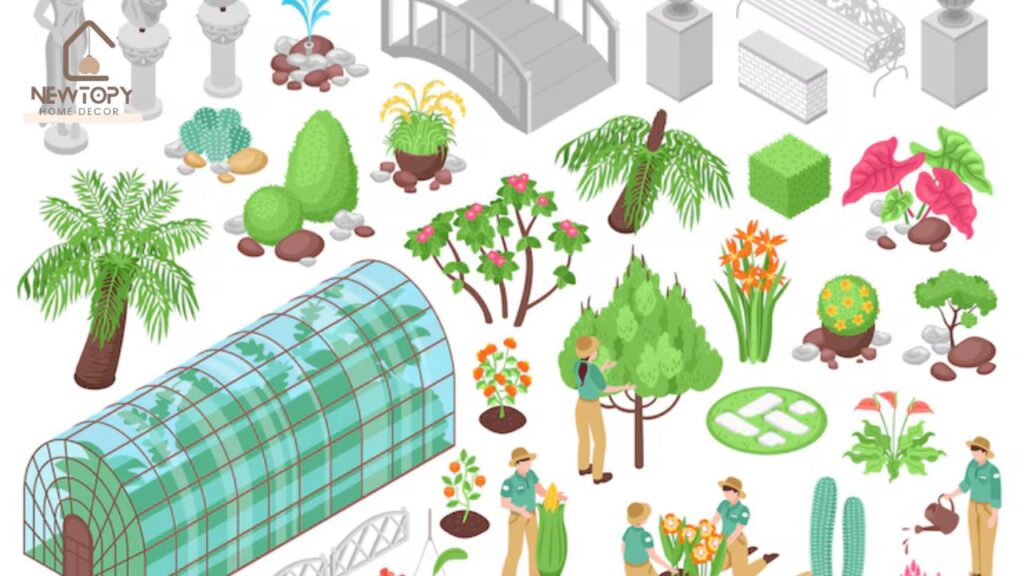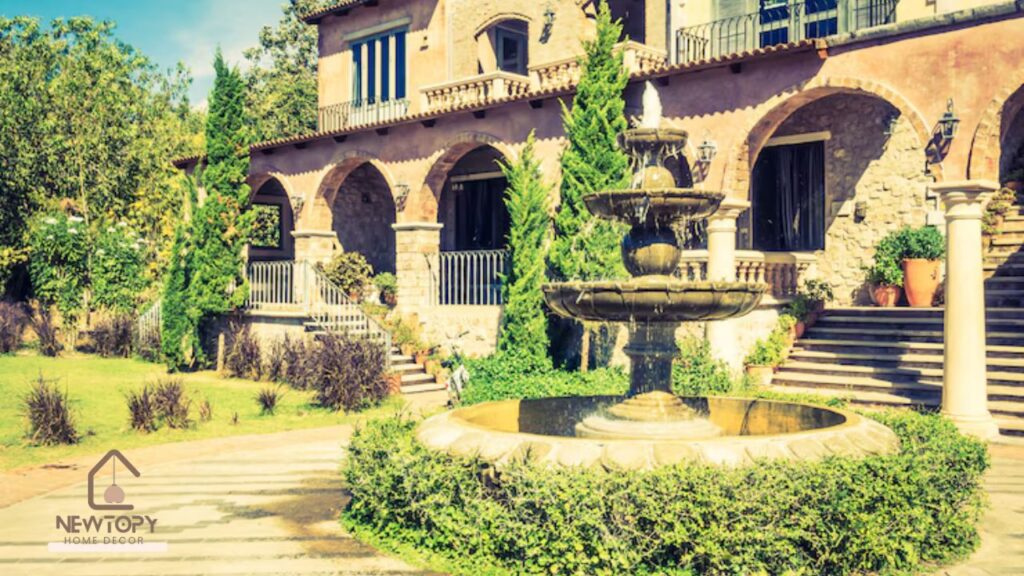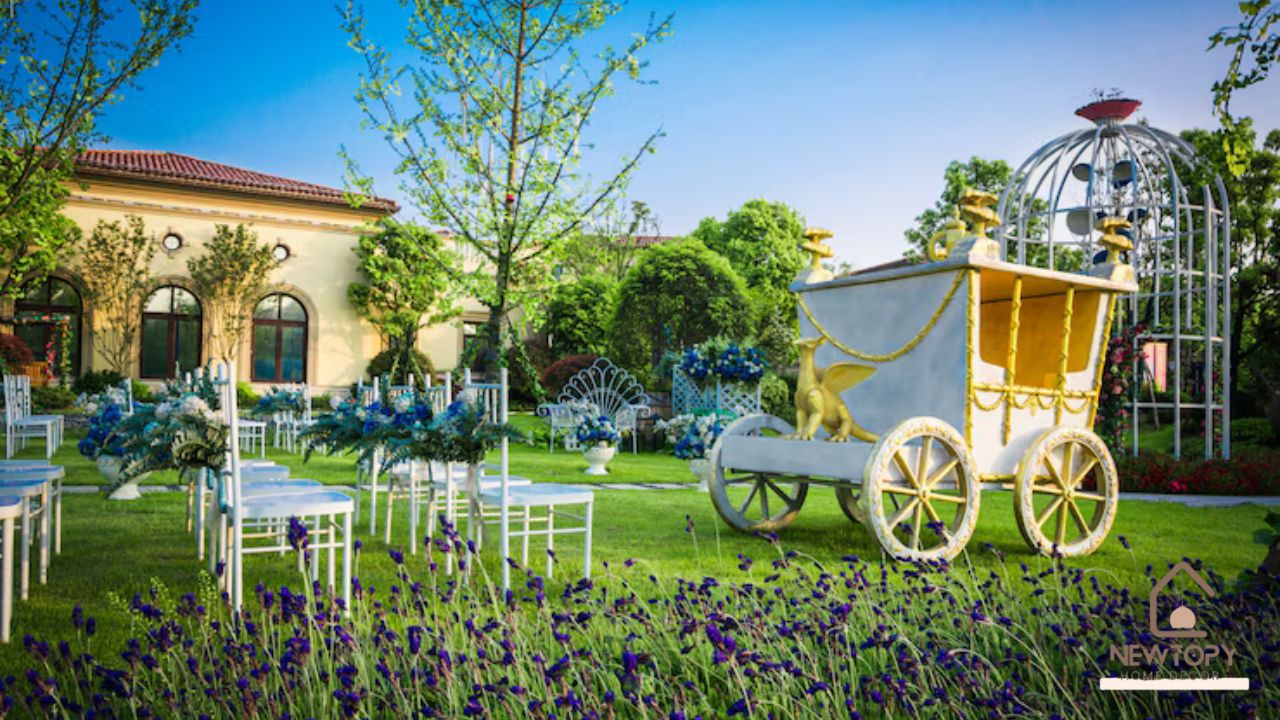Transforming outdoor spaces into tranquil havens is an art steeped in cultural elegance. Modern Italian garden design epitomizes this blend of symmetry, lush greenery, and contemporary charm. Whether you’re inspired by verdant landscapes adorned with trees, shrubs, and vines, or sleek details influenced by luxury interiors, this style marries tradition with innovation.
Summary Table
| Key Features of Modern Italian Garden Design | Description |
|---|---|
| Core Elements | Symmetry, geometric shapes, and classical accents |
| Focal Points | Fountains, sculptures, and structured greenery |
| Plant Choices | Trees, shrubs, vines, and house plants (Dutch style options) |
| Ideal for Spaces | Both urban patios and expansive countryside properties |
| Global Trends | Inspired by luxuryinteriors.org chalet luxe alpes influences |
Introduction to Modern Italian Garden Design
Modern Italian gardens retain the grandeur of traditional spaces but update them with contemporary finesse. Combining structure and spontaneity, these spaces often feature hedges sculpted into geometric shapes, climbing vines on pergolas, and the gentle trickling of fountains. This article will guide you through the inspirations, core design principles, and plant possibilities to create a Mediterranean-inspired retreat.
Why Modern Italian Garden Design?
Italian gardens are renowned for their symbolic balance between nature and art. Infusing modernity into these age-old designs makes them accessible for today’s minimalist spaces. Imagine sipping morning espresso amidst layers of cypress trees, while the aroma of blooming jasmine pervades your surroundings. The concept is irresistible and versatile for various home aesthetics.
Core Elements of Modern Italian Gardens

1. Symmetry and Geometric Precision
The hallmark of modern Italian garden design lies in structured layouts. Paths, hedges, and plant arrangements often follow a carefully balanced geometric grid. This symmetry creates visual harmony.
- Use hedging plants like boxwood to create neat boundaries.
- Arrange trees, shrubs, and vines in linear patterns for a clean, organized vibe.
2. Fountains and Water Features
Italian gardens often include a sense of tranquility with water features. Modern versions simplify these elements for sleek designs without losing charm.
Popular Features:
- Linear fountains with LED lighting.
- Reflective water basins framed by stone walls.
3. Plant Selection
The beauty of modern Italian gardens stems from their rich botanical variety. Essential additions include house plants styled in the Dutch tradition, cascading vines, and aromatic herbs.
Top Choices:
- Trees: Olive trees, Cypress trees.
- Shrubs: Hydrangeas, Lavender.
- Vines: Wisteria, Creeping fig.
Real-Life Examples of Modern Italian Gardens

Luxury Villas and Global Trends
High-end properties, like those featured by luxuryinteriors.org chalet luxe alpes le collectionist, incorporate Italian inspiration and modern implements. Contemporary Italian villa gardens often integrate smooth stone patios and minimalist planters.
Notable Locations to Explore:
- Iconic gardens in Tuscany that blend tradition with urban aesthetics.
- Locations referenced by luxuryinteriors.org and villa-inspired spaces in Ibiza.
Reviews from Garden Owners
“I transformed my tiny backyard into an Italian garden with minimal effort. Adding a couple of olive trees and building trellised pergolas made the space feel elegant yet approachable.” – Rated 5/5 by homeowner Maria T.
How to Design a Modern Italian Garden
Step 1. Choose Your Layout
Decide on focal points, pathways, and symmetry. Sketching ideas ensures a clear vision of the finished concept. Paths framed by gravel or stone tiles blend seamlessly into greenery.
Step 2. Highlight with Focal Features
- Add statues or even modern sculptures.
- Place small water basins surrounded by rows of shrubs.
Step 3. Use Strategic Greenery
Layer plants in height. For example, taller trees form the backdrop, followed by climbing vines along walls and shorter shrubs providing texture.
Step 4. Blend Traditional and Dutch Plant Styles
- Incorporate signature Italian plants like lemon trees or laurels.
- Add house plants styled in Dutch minimalism to soften rustic corners.
Sustainability in Modern Italian Design
Eco-Friendly Trends
Many are adopting sustainable gardening techniques that reduce water usage yet maintain lush aesthetics. Using drought-tolerant plants like lavender and rosemary supports the traditional Mediterranean climate values.
Innovative Tools
Using apps and planners inspired by platforms like “luxury interiors” helps curate plant combinations and modern elements without overwhelming your blueprint.
FAQs About Modern Italian Garden Design
What is the best plant to use for a modern Italian garden?
Olive and cypress trees are iconic. You should also consider shrubs like lavender which can offer both boundary structure and fragrance.
Can I create an Italian garden in a small space?
Absolutely! Use vertical elements like trellises for climbing vines, and potted house plants styled with Dutch influence. A small fountain or birdbath can complete the look.
How do modern Italian gardens differ from traditional ones?
While traditional designs focus on lush greenery and sculptures, modern adaptations simplify these components for clean lines and minimalist themes.
Final Thoughts
Modern Italian garden design harmonizes history with contemporary living. It’s about creating peace and visual appeal through balance. Whether you have a sprawling backyard or an urban balcony, integrating structures like symmetrical hedges and focal water elements can infuse elegance. Looking to elevate your space further? Start with curated options like house plants in Dutch style or inspirations from villa landscapes.
With thoughtful planning and a passion for natural beauty, turning your outdoor spaces into stunning meditative escapes is within reach!
Admin Recommended
Garden Tips for Decoradhouse: Transform Your Outdoor Space
Garden Tips for Decoradhouse: Transform Your Outdoor Space
Discover the Elegance of Luxury Villas in Italy with Le Collectionist
KDArchitects Landscape Ideas by Roger Morph















